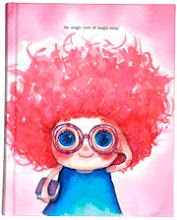
Travel, for many, is a voyage of discovery, finding out jigsaw-style, where you fit in the world. Should it be so? Dessaix’s characters, expatriates, flit from place to place, consumed by wanderlust. This restlessness is a by-product of the uncertainty of belonging. Corfu explores the wanderings of a young Australian actor, drawn to a village on Corfu after abandoning his travel companion and lover in Rome. Responding to a newspaper ad: ‘House in Gastouri for rent for 2 mths. Occupant traveling. Reasonable rent,’ he becomes immersed in the life that the occupant Kester Berwick has left behind.
Friendship and its value is a recurrent concern. The young man becomes enamored with Emerson’s description of friends as “beautiful enemies”, an apt view of relationships in Corfu. Kester Berwick’s friends adopt the Australian actor into their coterie. Whilst staying in Kester’s house, the young man discovers a link between his lover and Kester. Jealousy is engendered by this, aswell as understanding. In the final pages, the farewell of the Australian and return of Kester are juxtaposed, cementing their parallel lives as “beautiful enemies”.
Despite the loneliness of our lives, we choose the role our friends play. Greta, Kester’s friend tells Kester that ‘roots’ are transportable:
“If you want to go home, go and buy yourself a ticket, Otherwise for God’s sake, shut up about it.” If you’re small, you’re small-Adelaide, Abu Dhabi, Timbuktu-it makes no difference.”
The protagonist ruminates that words like ‘big’ and ‘small’ miss the mark. Everyone must confront the ordinariness that marks their lives. Chekhovian influences in this novel challenge self-aggrandizement.
Dessaix, an Australian author, is not accessible to all readers because of the dense literary landscapes his prose conjures. However, Russian literature enthusiasts will be indulged by the allusions integrated by this Russian professor. Whilst it took me most of the novel to settle into the plot, Corfu is worth a read for quality ideas and Dessaix’s conception of travel. Travel is depicted as how it should be, commodified package tours rejected in favour of the art of slow. Like a long walk allowing for endless thought trains, Dessaix leaves open the possibility of tangents and the creation of new paths.

No comments:
Post a Comment